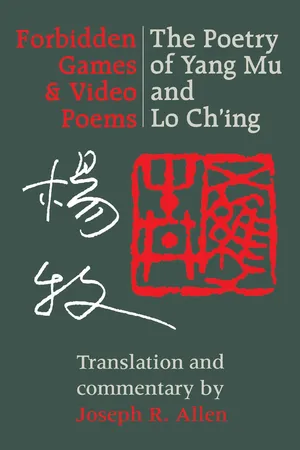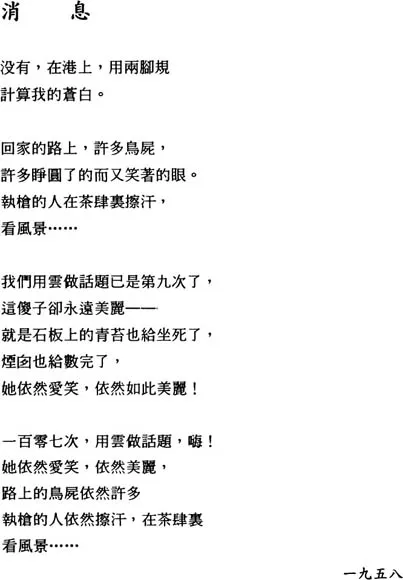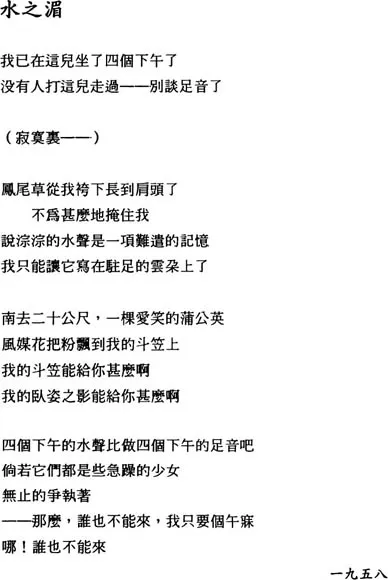
Forbidden Games and Video Poems
The Poetry of Yang Mu and Lo Ch'ing
- 448 pages
- English
- ePUB (mobile friendly)
- Available on iOS & Android
Forbidden Games and Video Poems
The Poetry of Yang Mu and Lo Ch'ing
About This Book
Two contemporary poets from Taiwan, Yang Mu (pen name for Wang Ching-hsien, b. 1940) and Lo Ch'ing (pen name for Lo Ch'ing-che, b. 1948), are represented in this bilingual edition of Chinese poetry ranging from the romantic to the postmodern. Both poets were involved in the selection of poems for this volume, the first edition in any language of their selected work. Their backgrounds, literary styles, and professional lifes are profiled and compared by translator Joseph R. Allen in critical essays that show how Yang and Lo represent basic directions in modern Chinese poetics and how they have contributed to the definition of modernism and postmodernism in China. The book's organization reflects each poet's method of composition. Yang's poems are chronologically arrangd, as his poetry tends to describe a narrative line that closely parallels his own biography. Lo's poems, which explore a world of concept and metaphor, are grouped by theme. Although each poet has a range of poetic voices, Yang's work can be considered the peak of high modernism in Chinese poetry, while Lo's more problematic work suggests the direction of new explorations in the art. In this way the two poets are mutually illuminating. Each group of poems is prefaced by an "illustration" that draws from another side of the poet's intellectual life. For Yang, who is a professor of comparative literature at the University of Washington, these are excerpts from his academic work (written under the name C.H. Wang) in English. The poems by Lo, a well-known painter living in Taiwan, are illustrated by five of his own ink paintings.
Frequently asked questions
Information
FORBIDDEN GAMES
The Poetry of Yang Mu
From Ritual to Allegory

The News

The River’s Edge
Table of contents
- Cover
- Half title
- Title
- Copyright
- Contents
- Acknowledgements
- Written with People in Mind
- A Poem Is a Cat in One’s Mind
- Yang Mu and Lo Ch’ing: A Profile
- Forbidden Games: The Poetry of Yang Mu
- Video Poems: The Poetry of Lo Ch’ing
- Translator’s Notes
- Density and Lucidity: The Poetics of Yang Mu and Lo Ch’ing
- Sources
- Bibliography of Selected Works by Yang Mu and Lo Ch’ing